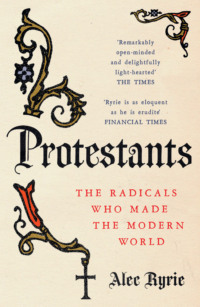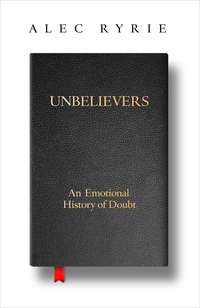
Полная версия
Unbelievers: An Emotional History of Doubt
All’s fair in religious polemic, and we should not take outraged accusations of unbelief too seriously. But this much is true: the Reformation era’s battle for credulity was a high-wire act. To attack your opponents’ doctrines as nonsensical and an affront to reason, while defending your own as incomprehensible and transcending reason, was a heady, exhilarating and dangerous rhetorical achievement. All sides in the Reformation debates were encouraging both credulity and a corrosive scepticism, teaching believers simultaneously to doubt and to loathe doubting. Scepticism was now not the opposite of faith, but a necessary component of it.
‘Doubt Wisely’: From Innocence to Experience
Catholics and Protestants wrote about one another as if they were different species. The reality was much more frightening. They were the same people, and they were liable to convert from one to the other. Every Protestant of the first generation had been raised a Catholic. Battle lines hardened thereafter, but conversions in all directions continued. The Reformation offered believers a religious choice. Most did not want such a thing and stuck to the faith in which they had been raised, but even that was a choice. For Christians who had grown up knowing that choosing is what heretics do, to be forced to choose was itself profoundly disturbing.
Конец ознакомительного фрагмента.
Текст предоставлен ООО «ЛитРес».
Прочитайте эту книгу целиком, купив полную легальную версию на ЛитРес.
Безопасно оплатить книгу можно банковской картой Visa, MasterCard, Maestro, со счета мобильного телефона, с платежного терминала, в салоне МТС или Связной, через PayPal, WebMoney, Яндекс.Деньги, QIWI Кошелек, бонусными картами или другим удобным Вам способом.



